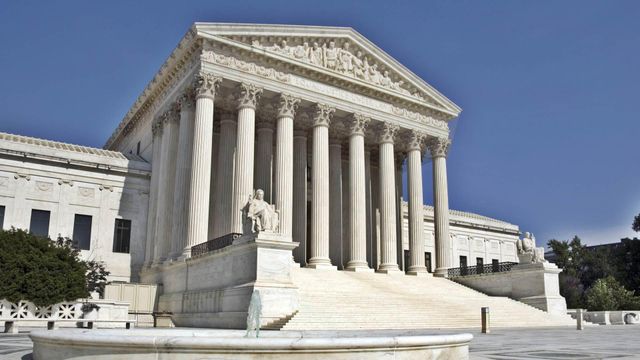NC case before Supreme Court could upend election laws nationwide, legal experts say
Next week, the U.S. Supreme Court will hear oral arguments in a case involving North Carolina election law. The decision in that case could have far-reaching effects on how elections are conducted across the country, court observers say.
On its face, the Moore v. Harper case is about redistricting. But at its core is a fringe legal theory that critics say could throw elections into chaos nationwide.
Earlier this year, the North Carolina Supreme Court ruled that gerrymandering — drawing maps for political advantage — violates the state constitution. Republican state lawmakers then petitioned the U.S. Supreme Court to take up the matter, arguing that a constitutional provision giving state legislatures the right to set the "time, place and manner" of federal elections means state courts don’t have the power to intervene.
J. Christian Adams, president of the right-leaning Public Interest Legal Foundation, supports that argument.
"The easiest part of the case is what the Constitution actually says, which is that the state legislatures have authority over these elections," Adams told WRAL News. "Not state courts, not independent redistricting commissions, but actually the legislature."
Voting rights attorney Allison Riggs called that argument, also known as the independent state legislature theory, dangerous. Riggs represents the Southern Coalition for Social Justice, a respondent in the case. She has argued redistricting cases before the state and federal supreme courts.
Riggs said that particular clause of the constitution, also known as the "electors clause," hasn't been interpreted in that way for more than 200 years. She said it would give lawmakers too much power over all election matters, not just redistricting.
"The Republican legislative leaders' theory is essentially that the state constitution is meaningless," Riggs said at a news conference Thursday. "It is a meaningless piece of paper when it comes to protecting the rights of voters in federal elections. This is extreme. This is not supported."
High-profile election law attorney Neal Katyal, who served as acting solicitor general of the United States under former President Barack Obama, will present the argument against the lawmakers' theory at the U.S. Supreme Court next week.
"What kind of world is it in which state legislatures can do whatever the heck they want when it comes to elections?" Katyal said at the news conference, which was hosted by voter advocacy group Common Cause.
Dozens of amicus briefs have been filed in support of the respondents and against state lawmakers' argument, including several by noted conservative and Republican election law experts.
"What's at stake here is truly the checks and balances that our founders placed into the system, and that's why you have people coming out of the woodwork from every corner of life, basically saying, "This cannot possibly be the law of the United States,'" Katyal said. "Maybe it's a law somewhere else — Russia, I don't know. But it ain't American democracy."
Adams, who penned one of the 16 briefs in support of the petitioning state lawmakers, said the courts aren’t needed to check state legislatures.
"The check on state lawmakers are the people themselves," Adams said. "That's why you have elections for house in North Carolina every two years. They can all be thrown out of office. North Carolina had a Democratic legislature not too long ago. So it's not impossible."
Riggs says when voting maps are drawn unfairly for political gain, that’s not true.
"We're talking about partisan gerrymanders that are specifically designed to prevent that check," Riggs said. "They are designed not to be fair maps, not to reflect the will of voters, but to produce a specific outcome — in this case, insulating the position of those already in power. It by definition can't be that check."
Adams said he believes the petitioning lawmakers will win.
"The Constitution says what it does, and I think that argument appeals to a majority of the court," Adams said. "Most members of the court, I think, agree that the plain language of the Constitution has to mean something."
Katyal said he wouldn't predict the outcome, but he noted that just three years ago, in Common Cause v. Rucho, the high court ruled that while federal courts couldn't adjudicate partisan gerrymandering cases, state courts could. Ruling in favor of state lawmakers in Moore v. Harper, he said, would require the court to reverse that 2019 decision.
"Two centuries have gone by with no one reading the text of the elections clause the way that the challengers are reading it. It's just not a thing," Katyal said. "And in order to do that, they'd have to overturn so many different Supreme Court cases. And we think that's just really hard."











